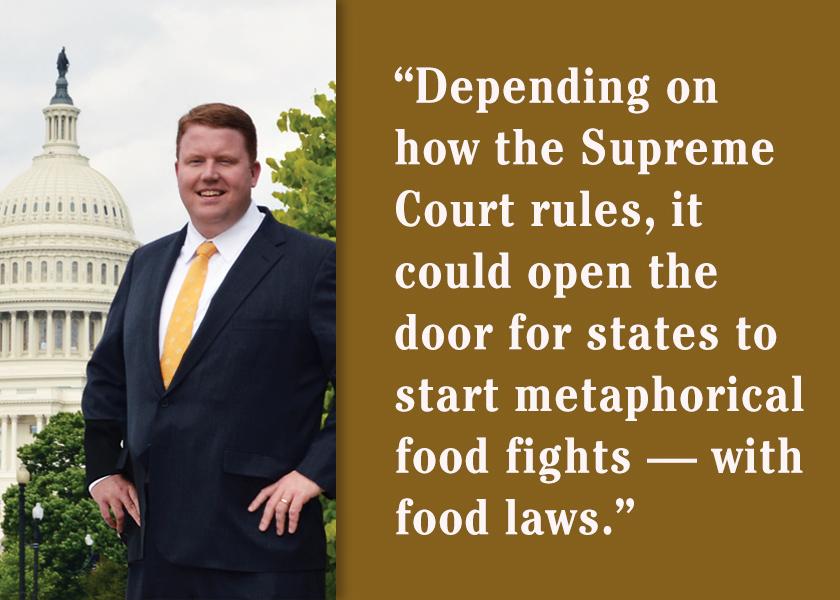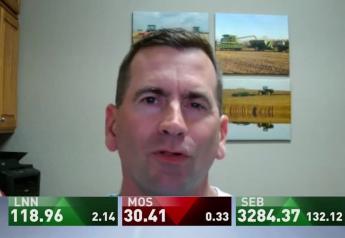John Dillard: Supreme Court Hops In The Pig Pen

Can California’s voters dictate how hogs are raised in Indiana based on animal welfare concerns? That is effectively the question the U.S. Supreme Court is pondering in a pending case, National Pork Producers Council v. Ross.
The case has implications for food production well beyond raising hogs. Depending on how the Supreme Court rules, it could open the door for states to start metaphorical food fights — with food laws.
THE FINE PRINT
In 2018, California’s voters passed a ballot initiative, Proposition 12, that requires California confinement operations to provide a minimum of 24 sq. ft. of space per sow.
More importantly, the law prohibits the sale of uncooked whole pork from sows or immediate offspring of sows that do not meet California’s standards, regardless of if the hogs are raised in California or out-of-state.
California is not a big pork-producing state; most of the pork consumed there is produced elsewhere. But, California is the largest pork-consuming state, accounting for 13% of the pork market. We can not ignore it as a market.
POWER OF ONE STATE
If California’s government sets standards for pork that can be sold in the state, a good portion of the industry is going to comply with California’s requirements.
But should one state be permitted to dictate — through market power — how a product is grown in another state? That’s the question the Supreme Court is pondering in the NPPC case. The U.S. Constitution’s Commerce Clause gives Congress the power to regulate interstate commerce.
The Supreme Court has interpreted the Commerce Clause to prohibit state governments from outright discrimination against out-of-state products.
But it is unclear if states can enforce laws that intend to influence out-of-state businesses activities so long as they treat in-state and out-of-state products equally.
The Supreme Court heard oral arguments on Oct. 11 (it will likely be a few months before the Court issues its decision). The justices appeared to struggle with balancing a state’s right to regulate commerce in its borders with the consequences of allowing California’s law to stand.
ETHICS AT HAND
In particular, the justices were concerned with if a state could dictate farming practices based on perceived ideas of morality. While animal welfare concerns are germane to pork production, states could premise access to their markets based on other questions of morality where political partisans disagree, such as employee status (e.g., undocumented, union), abortion access, fuel sources or carbon emissions.
We can anticipate the Supreme Court’s decision will have implications for farmers and ranchers caught in the middle.







